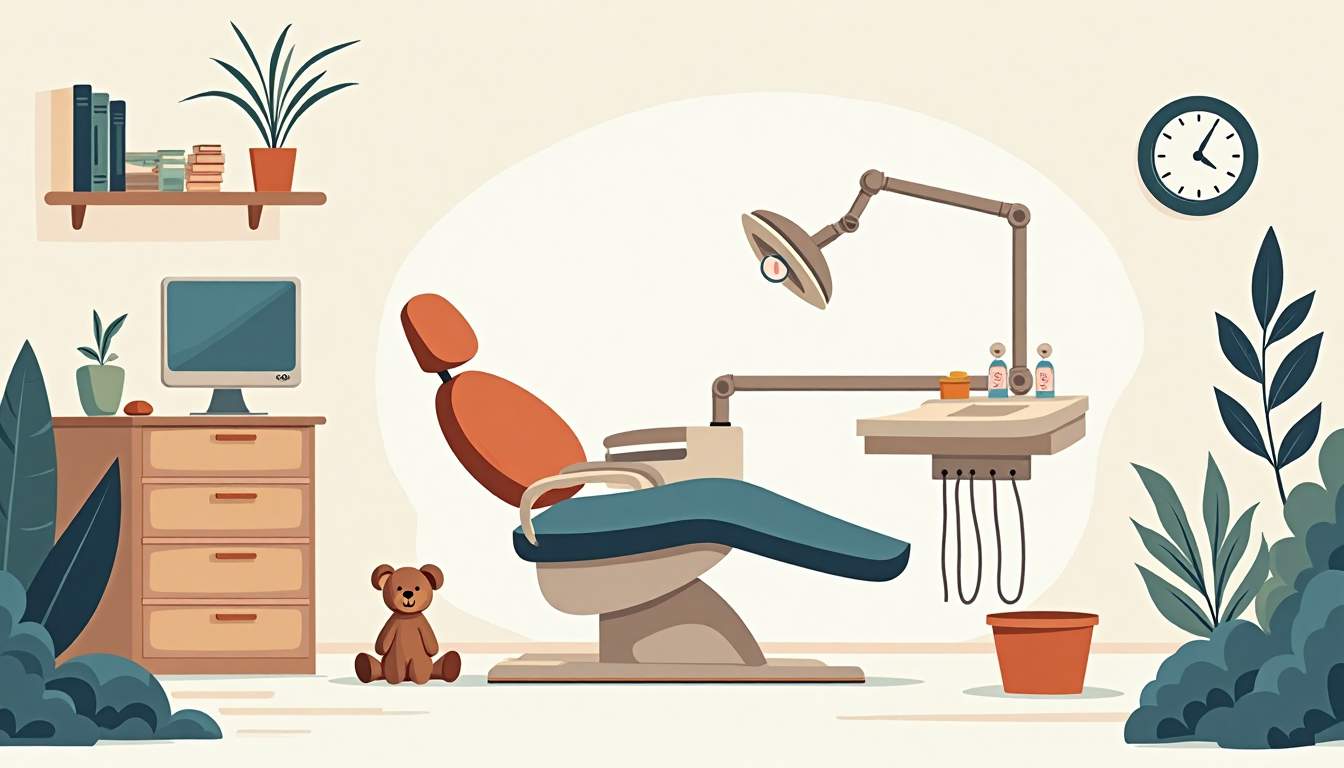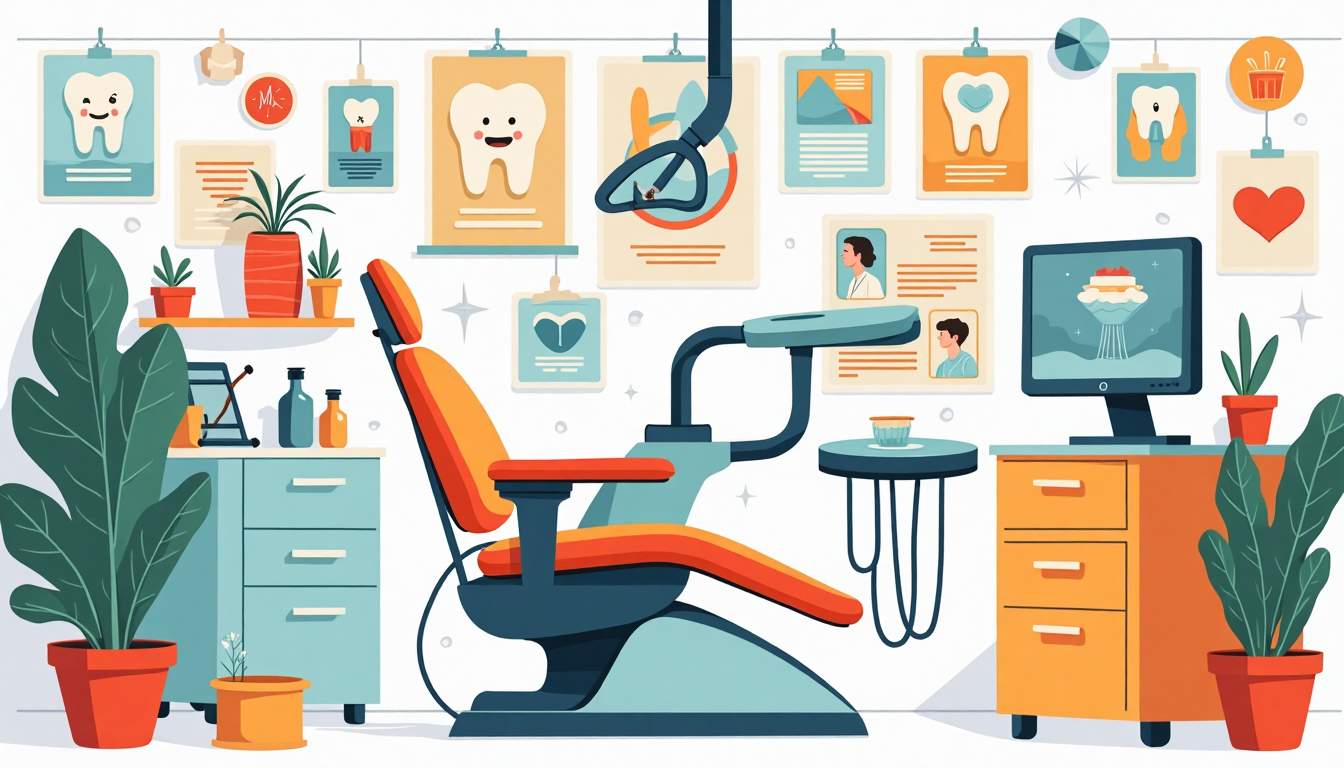views
This article explores the numerous benefits of early dental visits for children, highlighting why these appointments are essential beyond just cleaning teeth. From preventing future dental problems to building comfort and trust with the dentist, early visits play a crucial role in a child's overall well-being.
Building a Foundation for Lifelong Oral Health
Early Detection and Prevention of Dental Issues
One of the primary advantages of early dental visits is the ability to detect potential oral health issues before they become serious problems. Cavities, misaligned teeth, and other dental concerns can develop even in very young children. By visiting the dentist early, parents and dental professionals can identify these issues promptly and take steps to address them.

Preventive care during these visits often includes fluoride treatments and dental sealants, which help protect children's teeth from decay. Dentists can also provide guidance on proper brushing and flossing techniques tailored to a child’s age, ensuring that parents know how to care for their child’s teeth effectively at home. Additionally, discussions about nutrition can play a critical role in oral health; dentists can educate parents on the impact of sugary snacks and beverages on their child's teeth, encouraging healthier dietary choices that support strong enamel and overall well-being.
Establishing a Dental Home
Creating a “dental home” means establishing an ongoing relationship between the child, their family, and a dental care provider. This concept is vital because it ensures continuous, comprehensive oral health care throughout childhood and beyond.
When children have a dental home, they receive personalized care that adapts as they grow. This consistent care helps monitor their development, address any concerns early, and maintain their oral health with regular checkups and cleanings. It also fosters a sense of familiarity and comfort, making dental visits less intimidating over time. Furthermore, a dental home can serve as a resource for families, providing education on emerging dental technologies and treatment options, as well as updates on the latest research in pediatric dentistry. This ongoing dialogue not only empowers parents but also instills in children the importance of oral health, setting a positive precedent for their future dental habits. To ensure your child receives this level of care, consider scheduling a visit with Indental Castle Hill.
Reducing Fear and Anxiety Around Dental Visits
Creating Positive Dental Experiences
Many adults avoid the dentist due to fear or anxiety stemming from negative childhood experiences. Early dental visits can help prevent this by introducing children to the dental environment in a gentle, friendly way. When children visit the dentist from a young age, they become accustomed to the sights, sounds, and sensations of dental care, which reduces fear and builds confidence.

Dental professionals often use child-friendly techniques, such as colorful offices, toys, and simple explanations, to make visits enjoyable. These positive experiences help children associate dental care with comfort rather than pain or discomfort, encouraging them to maintain regular appointments as they grow. Additionally, some dental practices incorporate fun activities, such as storytelling or interactive games, during waiting times. This not only distracts children from any anxiety but also fosters a sense of excitement about their dental visits, turning what could be a stressful experience into a fun outing.
Encouraging Cooperation and Good Behavior
Early visits also provide an opportunity for children to learn how to cooperate during dental exams and treatments. Dentists and hygienists skilled in pediatric care know how to communicate effectively with children, making the experience engaging and less intimidating.
When children understand what to expect and feel safe during their visits, they are more likely to cooperate, making dental care smoother for both the child and the dental team. This cooperation is crucial for effective treatment and helps build a foundation for positive health behaviors in the future. Furthermore, many dental offices implement reward systems, where children can earn stickers or small prizes for their good behavior during appointments. This not only reinforces positive actions but also motivates children to take an active role in their dental health, encouraging them to share their experiences with peers and siblings, which can further normalize and demystify dental visits in their social circles.
Promoting Overall Health and Development
Link Between Oral Health and General Health
Oral health is closely connected to overall health, especially in children. Poor dental hygiene can lead to infections that affect other parts of the body and contribute to issues such as heart disease and diabetes later in life. Early dental visits help prevent these problems by ensuring that children’s mouths remain healthy and free from harmful bacteria.

Moreover, dental problems can impact a child’s ability to eat, speak, and sleep properly. By addressing oral health early, parents can help their children avoid complications that might interfere with growth and development. In fact, studies have shown that children with untreated dental issues are more likely to experience chronic pain, which can hinder their ability to concentrate in school and engage in social activities. This highlights the importance of regular dental check-ups not just for maintaining oral hygiene, but also for fostering a child's overall quality of life.
Supporting Proper Speech and Nutrition
Healthy teeth and gums are essential for proper speech development. Dental issues such as misaligned teeth or early tooth loss can affect a child’s ability to pronounce words clearly. Early dental visits allow dentists to monitor these aspects and recommend interventions if necessary. Furthermore, speech therapists often work in conjunction with dental professionals to address any speech impediments that may arise from oral health issues, creating a comprehensive approach to a child's communication skills.
Additionally, pain from dental problems can make it difficult for children to eat a balanced diet. By preventing or treating dental issues early, children are more likely to enjoy a variety of nutritious foods, supporting their overall growth and well-being. This is particularly critical during formative years when children are developing their taste preferences and dietary habits. A healthy mouth not only allows for better nutrition but also encourages children to explore different foods, which can lead to healthier lifestyle choices as they grow older. Engaging children in conversations about the importance of oral health can also empower them to take responsibility for their own hygiene practices, setting a foundation for lifelong health.
Empowering Parents with Knowledge and Resources
Guidance on Oral Hygiene Practices
Parents often have questions about the best ways to care for their child’s teeth, especially in the early years. Early dental visits provide an excellent opportunity for parents to receive expert advice tailored to their child’s needs. Dentists can demonstrate proper brushing and flossing techniques, recommend suitable dental products, and offer tips on managing habits like thumb sucking or pacifier use.
Armed with this knowledge, parents can confidently support their child’s oral health at home, reducing the risk of dental problems and fostering good habits that last a lifetime.
Nutrition and Lifestyle Recommendations
Diet plays a significant role in dental health. During early dental visits, professionals can advise parents on foods and drinks that promote healthy teeth and those that increase the risk of cavities. For example, limiting sugary snacks and beverages can significantly reduce the chances of tooth decay.
Additionally, dentists may discuss the importance of regular water intake, especially fluoridated water, which helps strengthen tooth enamel. These lifestyle recommendations complement dental care and contribute to a holistic approach to children’s health.
Long-Term Cost Savings and Health Benefits
Preventing Costly Dental Treatments
Investing in early dental visits can save families money in the long run. Preventive care and early intervention reduce the likelihood of extensive dental procedures such as fillings, root canals, or extractions, which can be costly and stressful for both children and parents.
By catching problems early, dentists can often treat them with simple, less invasive methods. This proactive approach not only preserves the child’s natural teeth but also minimizes the need for more complex treatments later.
Establishing Healthy Habits for a Lifetime
Perhaps the most valuable benefit of early dental visits is the establishment of healthy habits that last a lifetime. Children who grow up with regular dental care are more likely to continue visiting the dentist as adults, maintain good oral hygiene, and enjoy better overall health.
These habits contribute to a higher quality of life, including confidence in one’s smile, fewer health complications, and reduced healthcare costs over time.
Conclusion
Early dental visits are a cornerstone of children’s health and well-being. They provide a foundation for healthy teeth and gums, reduce fear and anxiety around dental care, and promote overall development. By establishing a dental home and empowering parents with knowledge, these visits set children on a path toward lifelong oral health.
Parents are encouraged to schedule their child’s first dental appointment by the age of one or shortly after the first tooth appears. This simple step can make a profound difference in a child’s health, happiness, and confidence for years to come.



Comments
0 comment